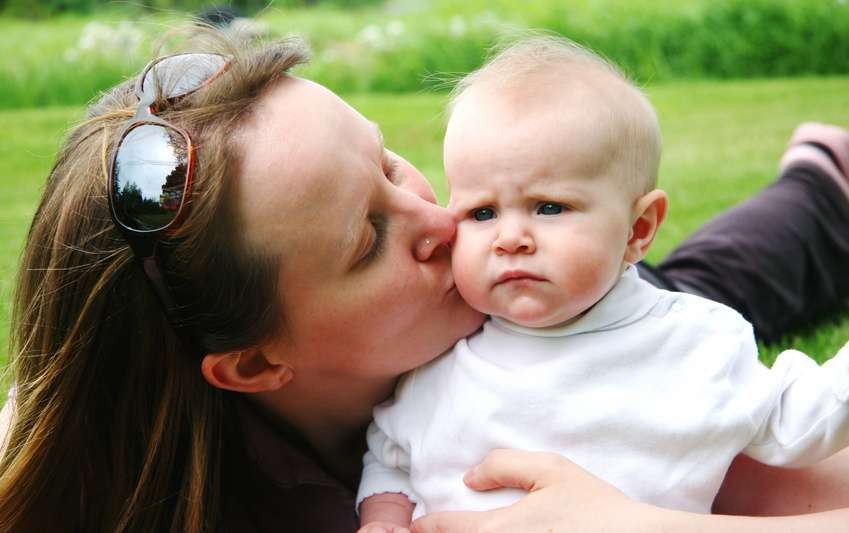Care and Education

Birthdays
If parents would like to have their child celebrate their birthday with children and educators at the service, they are welcome to bring a cake but will need to discuss with the service the ingredients used in case of allergies. It is preferred individual cup cakes are provided.
Parents are asked to provide a list of ingredients used in the cake. Cream fillings are not allowed. If parents would like to be present at the time of the celebration, they will need to advise the educators in the room to ascertain at what time the candles will be lit and the cake eaten. Educators endeavour to celebrate birthdays throughout the day’s activities.
Excursions
Excursions are seen to be an important extension of an early childhood program. Children may go out of the service to activities as well as events and activities being brought into the service. As part of the preparation for either an internal or external excursion or activity, an information and permission notice will be distributed to parents of children involved. Risk assessments are undertaken.
Parents who feel their hobby or profession could be of interest are more than welcome to speak to educators regarding involvement in the program. Parental involvement is welcomed and encouraged. Consider cooking, musical instruments and hobbies.
Children’s Learning
What is this new learning framework about?
The Early Years Leaning Framework (EYLF) has been developed to ensure your child receives quality education programs in their early childhood setting.
The Framework’s vision is for all children to experience Play-based learning that is engaging and builds success for life. It is a guide for early childhood educators who work with children from birth to five years. They will use the Framework in partnership with families, children’s first and most influential educators, to develop learning programs responsive to children’s ideas, interests, strengths and abilities, and recognise that children learn through their play.
The EYLF describes childhood as a time of belonging, being and becoming.
- Belonging is the basis for living a fulfilling life. Children feel they belong because of the relationships they have with their family, community, culture and place.
- Being is about living here and now. Childhood is a special time in life and children need time to just ‘be’ – time to play, try new things and have fun.
- Becoming is about the learning and development that young children experience. Children start to form their sense of identity from an early age, which shapes the type of adult they will become.
Reference: Belonging, Being & Becoming, The Early Years Learning Framework for Australia ‘Information for Families’ booklet.
The Natioinal Quality Framework
By following the National Quality Framework (NQF) for Early Childhood Education and Care, Educators help to ensure your child is given the best possible start in life by focusing on the 7 key areas of the NQF:
- Educational program and practice.
- Children’s health and safety.
- Physical environment.
- Staffing arrangements.
- Relationships with children.
- Partnerships with families and communities.
- Leadership and service management.
Interactions and Relationships with Children
Guidance strategies will always encourage the individuality, confidence and self-esteem of the child and incorporate a holistic approach to encouraging positive interactions and relationships. Consistent clear guidelines, limits and rules will be developed in consultation with children and parents/ guardians where appropriate. These will be:
- • Known and understood by early childhood educators
- Shared with parents
- Explained to children
Educators will recognise that for guidance to be effective, children need:
- A genuine sense of loving care
- A non-judgmental and secure atmosphere
- A positive sense of self
- A sense of trust in educators
- Empathic understanding
- An environment that provides opportunities for rest and rejuvenation
Educators will consult with parents/guardians regularly on guidance matters and will seek constructive solutions to any difference in values.
Educators’ expectations of children will be developmentally appropriate and realistic for the situation.
Where educators are having difficulties with a child a meeting shall be arranged between the educator and the parents/guardians where strategies shall be discussed with the parent and a guidance plan set out.
Toys from Home
Items from home can be of comfort to the children and are encouraged to help settle children into the services. We also acknowledge children have a strong sense of belonging when they are able to bring items from home. Educators will care for the equipment but cannot accept responsibility for toys or play equipment that the child has brought into the service. Children may wish to bring along a tape, CD or book that can be shared by all of the children.
Transition of Children between Rooms
Transition is based on the child readiness and this may vary greatly depending on the individual child. If a child is ready to move to another room, the educators will discuss with the families the best way to do this. The child’s developmental progress and readiness is discussed and the child’s parents.
In the time leading up to their room change the child is taken into the new room with familiar educators for orientation. If settled there, the child has opportunities to make some visits on their own.
Educators continue to discuss the outcomes of the orientation visits and will consult with parents before the transition takes place permanently. They complete a summary to assist the new room leader to plan for the child. Parents will also be invited to the new room to orientate.
Please note that the movement into the next room is subject to available spaces and there may be times when the child remains in their original room until a place is available.
Parent/Guardian Participation
Parents/Guardians are welcome in the service and are encouraged to participate in formal and informal events throughout the year.
Parents/Guardians may wish to become involved through:
- Participating in the program e.g. coming in for a visit, helping out, sharing a skill you have (cooking, gardening, play a musical instrument)
- Completing Family Input Surveys, feedback and Family Voice sheets
- Attending information nights and social events
- Coming on excursions
- Bringing in recycling materials e.g. boxes, newspapers, containers etc.
- Fundraising – donating goods, helping to organise events, selling/buying raffle tickets
- Feedback on the service’s happenings, program or policies and procedures
Children love to see their Parents/Guardians involved in their lives. Parents/Guardians can choose the level and extent of their involvement dependent upon work, family and other commitments. Parents can have information either verbal, written or email.
Service Emails
- Arthur Dickmann Children’s Centre
arthur.dickmann@shepparton.vic.gov.au - Frank Pullar Children’s Centre
frank.pullar@shepparton.vic.gov.au - Nancy Vibert Childcare Service
nancyvibert@shepparton.vic.gov.au
Photographs
Photographs are often taken at the service to highlight and complement the service program, to use in discussions with parents and children, and for display in the service. They are also a great source of enjoyment for educators, parents and children. Photos are only taken with the permission of parent/guardian. Permission is given by signing a clause that appears on the enrolment form.
Students
From time to time students undertaking various tertiary studies in Early Childhood Education or from secondary education institutions on work experience placement will be working under supervision in the service. A notice at the service will displayed to identify students. Students will always work with and under the supervision of the educators.
Supervision
Children will be able to experiment and develop in a safe, secure environment within the following guidelines:
- Educators will actively supervise children at all times, including when they are in the toilet and bathroom areas.
- Play equipment will be kept in good working order and cleaned regularly.
- Educators will participate in children’s activities to ensure active supervision.
- Educators will position themselves throughout the room and yard to ensure maximum supervision of children’s play areas.
- Supervision will be a regular item of discussion on educators meeting agendas.
- Accident book will be reviewed quarterly if there are any recurring themes and further procedures will be implemented.
Active supervision includes sensitive, creative interaction by educators in the program who will extend activities and encourage children to develop their skills at their own pace.

